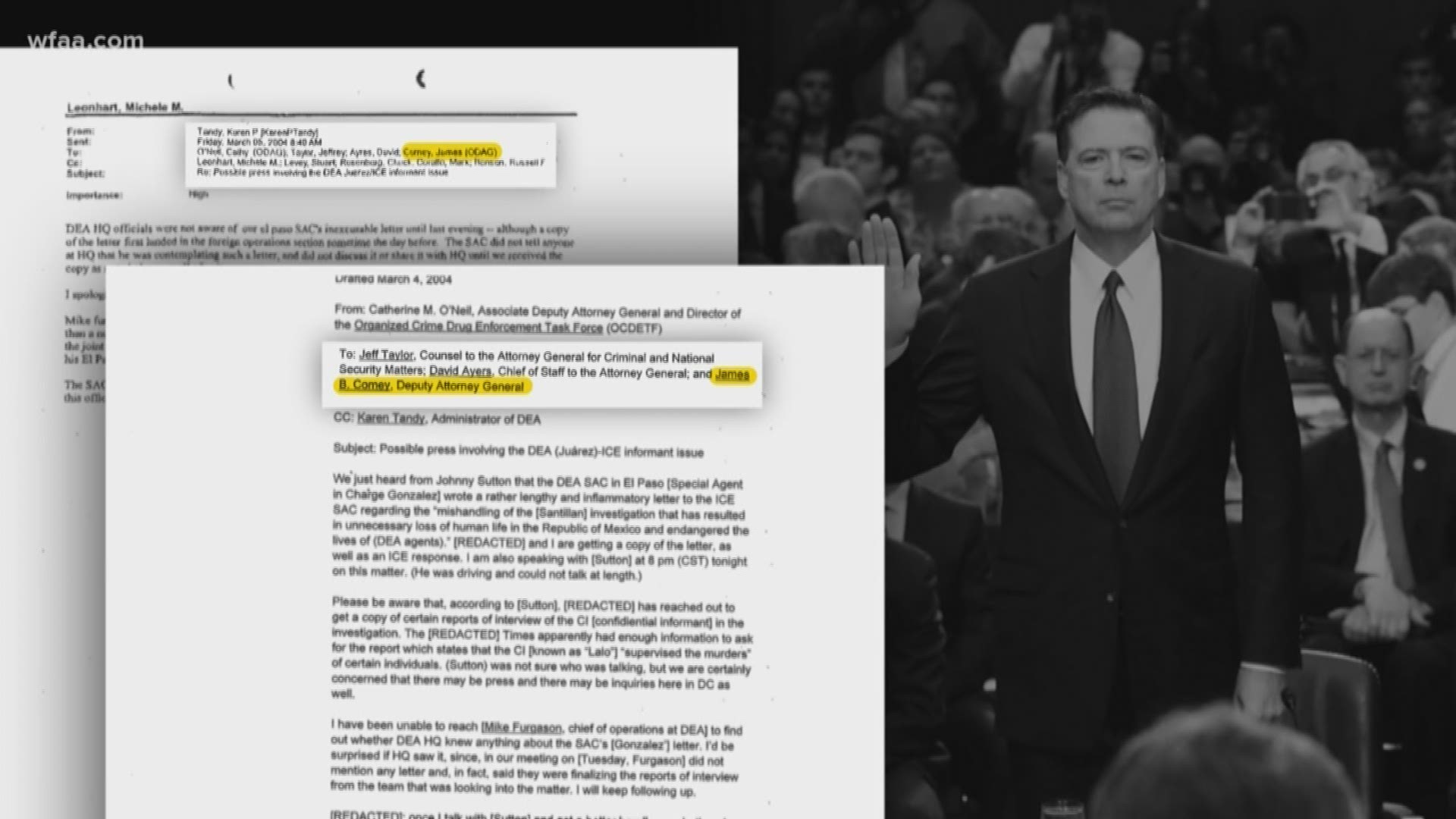Unredacted emails recently obtained by WFAA show that James Comey – at the time a Deputy U.S. Attorney General in 2004 – was apparently made aware that a federal drug informant was playing a role in cartel murders.
However, neither Comey, nor other top federal officials named in the emails, shut down the investigation or suspended use of the informant.
“Comey knowing this and then proclaiming to be such a boy scout is a little bit hypocritical,” said U.S. Rep. Michael McCaul, R-Texas, and chairman of the House Homeland Security Committee.
“Actions speak louder than words. In this case, inaction. You know you’ve got an informant on a rampage. You know your informant is not being controlled. You’re consciously aware of that. And you ignore it,” said David Finn, a former federal prosecutor and state judge in Dallas.
The emails show Comey was copied in on internal concerns about a federal drug informant named Guillermo Ramirez-Peyro, nicknamed Lalo, suspected of supervising or assisting in murder while the U.S. was paying him $224,000 for inside information on a cartel.
In a 2006 story WFAA produced with Lalo, he denied committing murder but admitted that he was present during cartel killings, including at a duplex across the Rio Grande from El Paso in Juarez.
Lalo even said he bought supplies and helped oversee the burial of the victims. A dozen bodies were later found on the property – most with their hands bound. Witnesses, at the time, told WFAA that some murder victims had plastic bags over their heads and appear to have been buried alive.
The Department of Justice guidelines, both in 2004 and 2018, require informants to be closely monitored. The guidelines also specifically forbid informants from participating in violent crimes.
Lalo told WFAA that not only did U.S. government agents know about the murders, described by cartel members in code as “carne asadas,” but U.S. agents even listened in on one killing.
“They knew what was going on all the time because it’s not something that happens in one week,” Lalo told WFAA in 2006.
Comey insists – detailing recently in his book, "A Higher Loyalty" – that his career was always defined by ethics and the strict rule of law.
Last month, Comey Tweeted “… Confidential Human Sources (the actual term) [are] tightly regulated and essential to protecting the country.”
“Here, what’s so outrageous, the government was aware of it. They were copied on emails and yet they did nothing,” Finn added. “If you are an informant for the Department of Justice you cannot break the law. Period. End of sentence. No exceptions.”
One email exchange between DOJ officials, with Comey copied, cites a DEA special agent’s concerns about “unnecessary loss of human life” in an investigation, and described a report that an informant named Lalo “supervised the murders.”
It is uncertain why the U.S. government officials did not immediately shut down the investigation or suspend use of Lalo. The informant also was working on a cigarette smuggling operation in which the federal government was unable to collect taxes.
WFAA reached out to Comey’s publicist with questions regarding this case. However, neither she nor Comey responded.
“That’s not how it’s supposed to work. I think that violates the rules of the game in the Justice Department,” Rep. McCaul said.

